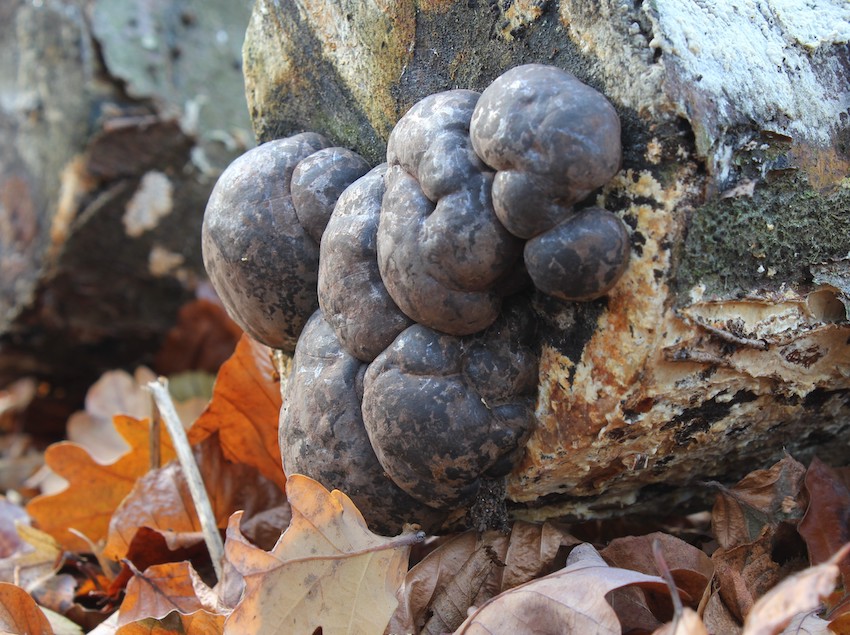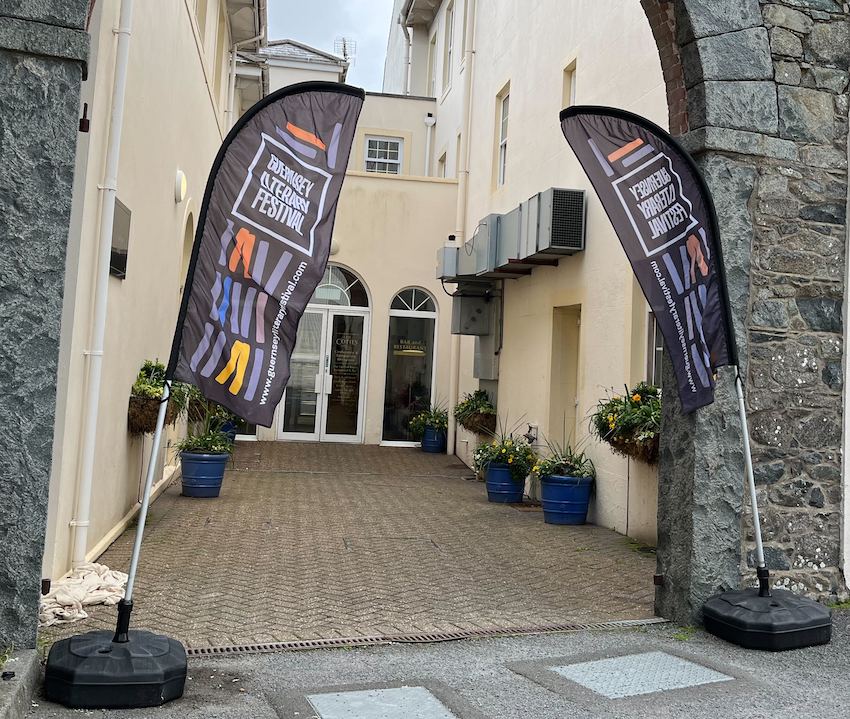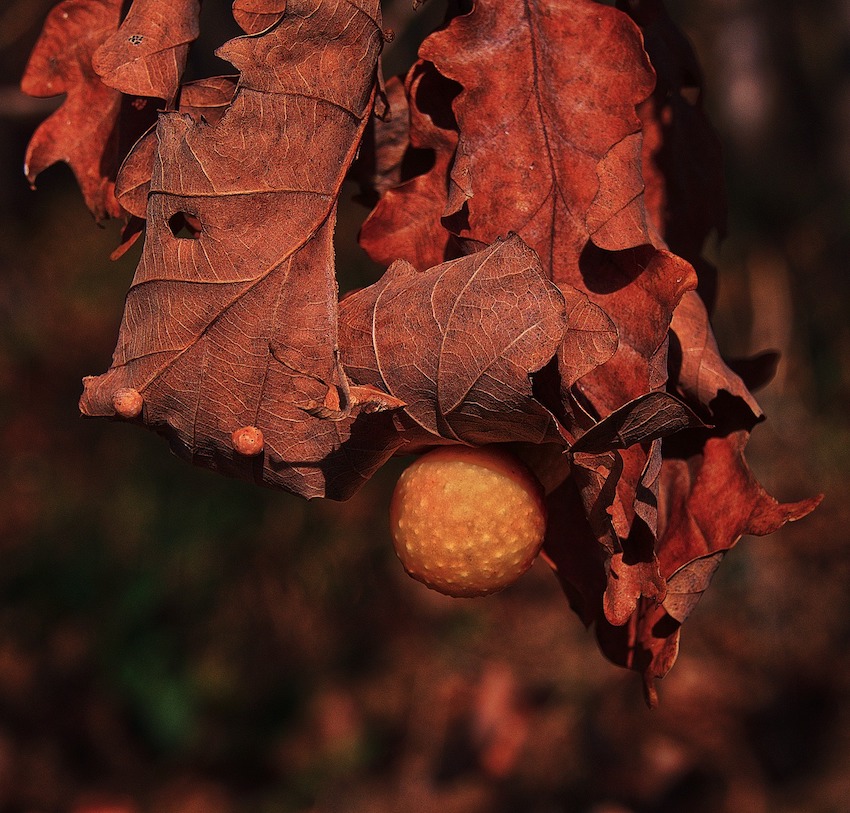


There is apparently only one sensible time to go for a walk with John Wright if you want to get anywhere fast - at night.
Otherwise he is forever stopping and examining what many of us would unwittingly stroll right on by without a thought.
Even the cover of darkness might not dent that fascination because there could always be a passing firefly.
“It's such a joy to actually start to look closely at things,” he said.
For more than 50 years he has been building his knowledge of the natural world around us, describing himself as an amateur mycologist, studying fungi and how they interact.
He is also keen on lichens and various other organisms.
John was visiting as part of the Guernsey Literary Festival, talking about his latest book, The Observant Walker.

“My publishers said, ‘well, you take people on mushroom hunts and seaweed hunts and along hedgerows, you take natural history walks, so would you write a book which really does just that, takes the reader for a walk,’” he said.
“I thought that was a really good idea, mostly because it's something I’m well practised in. And also it gives me a chance to wander off on wildly different unrelated subjects like conservation. People go for a walk and a lot of people say that's a nice tree there, they may or may not know what it is, they might say, ‘oh, that's the Evergreen oak’. Most people, however, don't see what they pass on their walks. It's just a green backdrop to their lives.”
As he grew up, John wanted to be a rocket scientist. He still does.
“I was very keen and still am keen on physics and chemistry and so on,” he said.
“But I had a few encounters with the natural world as I was brought up in Portsmouth and we would occasionally visit the New Forest. And there were things I found there and they turned out to be fungi. At the time I didn't know what they were because I was a teenage lad, as far as I was concerned there were animals and plants and that was it."
There was one particular fungi that hooked him - Daldinia concentrica - also known as Cramp Balls, because carrying them was said to cure cramps, or King Alfred’s cakes, because they look like the burnt cakes he was said to have thrown away in embarrassment when asked to look after the baking by a peasant women as he fled the Vikings.

Pictured: Daldinia concentrica by Stu's Images.
They look like hard, roundish lumps of coal stuck to the surface of decaying wood.
“I thought, ‘what, how did this get there?’ Because it was like charcoal. I thought, ‘how can it grow, it looks dead?’ So I picked it and took it back. I went to the library and found out what it was.”
He went on to buy The Observer Book of Mushrooms and Toadstools, which he said was “a nice little book but not desperately helpful, because what colour images there are, are terrible and most of the pictures are black and white, which has no use whatsoever when it comes to identify a mushroom".
“The spur in all this is being easily annoyed with my own ignorance. I am perpetually annoyed with my own ignorance. And I just fight against ignorance all the time.”
John worked for 30 years as a furniture maker in Dorset, all the time looking for mushrooms, plants and building up his knowledge.
He got involved in Hugh Fearnley-Whittingstall's River Cottage TV series, which launched in 1999, hunting for mushrooms.
“One day Hugh phoned me up and said, ’would you like to write a book for River Cottage about mushrooms?’”
It was the first one of the handbook series and he has written three more for that - Edible Seashore, Hedgerow and Booze.
"I jumped at that chance because I’m very keen on writing and thought I’ probably make a reasonable job of it. It’s done very well."

He took to writing like “a duck to water”.
“You get better, or you get quicker, really. When I did the first book I would write a paragraph, then think that’s just terrible and scratch it. I’d write it six times. I probably still do that, every paragraph gets rewritten a dozen times. It’s only when I stop changing things that I’ll stop doing read throughs. Sentences need to be beaten into submission.”
He likes to think of himself as a “reasonably good mycologist” and a not particularly good, but still trying very hard, botanist.
“I know a few seaweeds. When it comes to insects we’re down to, you know, maybe 100 species I can name which is really pathetic, considering how many there are. With lichens, I’m trying really hard. So I present the latest book from the point of view of someone who is generally speaking ignorant, but trying so hard.
“I hope we’re all trying to understand what is around us because there’s so much more than people imagine, they just don’t see it.”
But you have to work on that knowledge.
His tip is to start with galls on plants.
These are abnormal growths that occur on leaves, twigs, roots or flowers, often caused by feeding of egg laying by insects.

Pictured: An oak apple or oak gall, a large, round gall commonly found on many species of oak.
“You think it’d be impossible to identify. But if you can identify the plant, which is not necessarily that difficult, you can use the standard book of British galls.”
Since 1992, he has led more than 1,000 walks.
At the end, people often remark on how much they have seen - that a walk will never be the same again.
“But the thing I've observed, sometimes almost physically, is the peace that descends on people because it's a meditative experience. And I’ve met people in tears, not because it was horrible, they were tears of joy.”
Comments
Comments on this story express the views of the commentator only, not Bailiwick Publishing. We are unable to guarantee the accuracy of any of those comments.